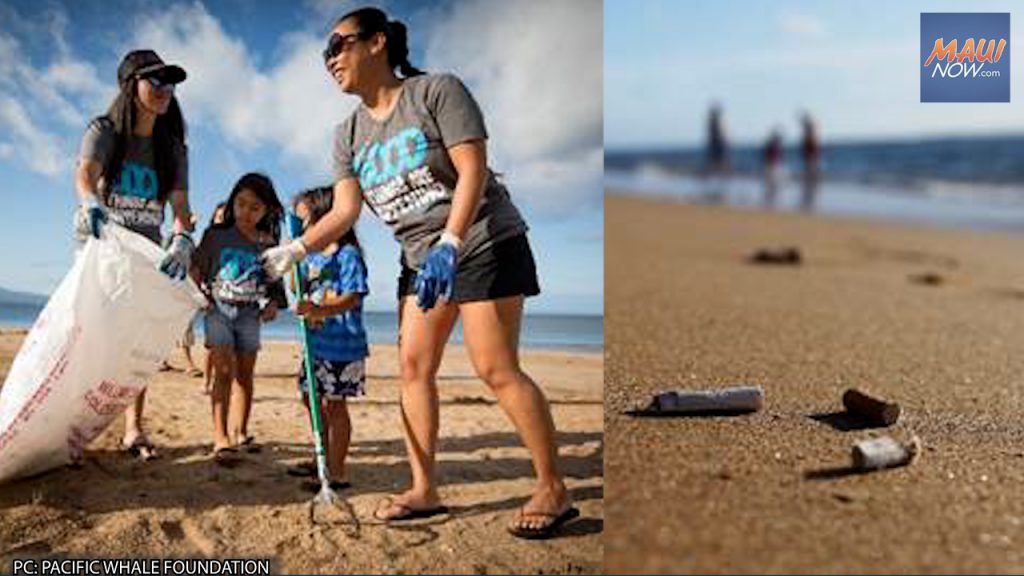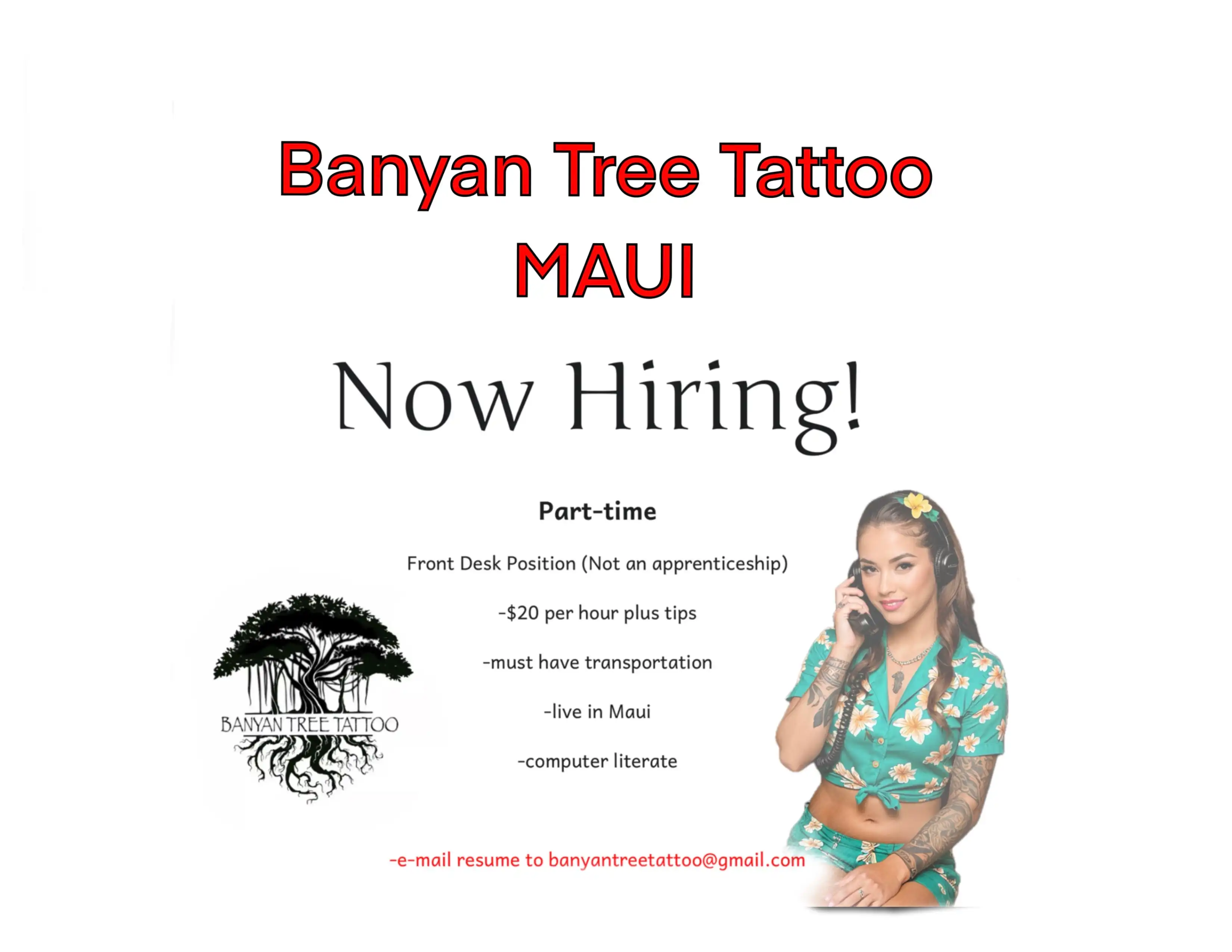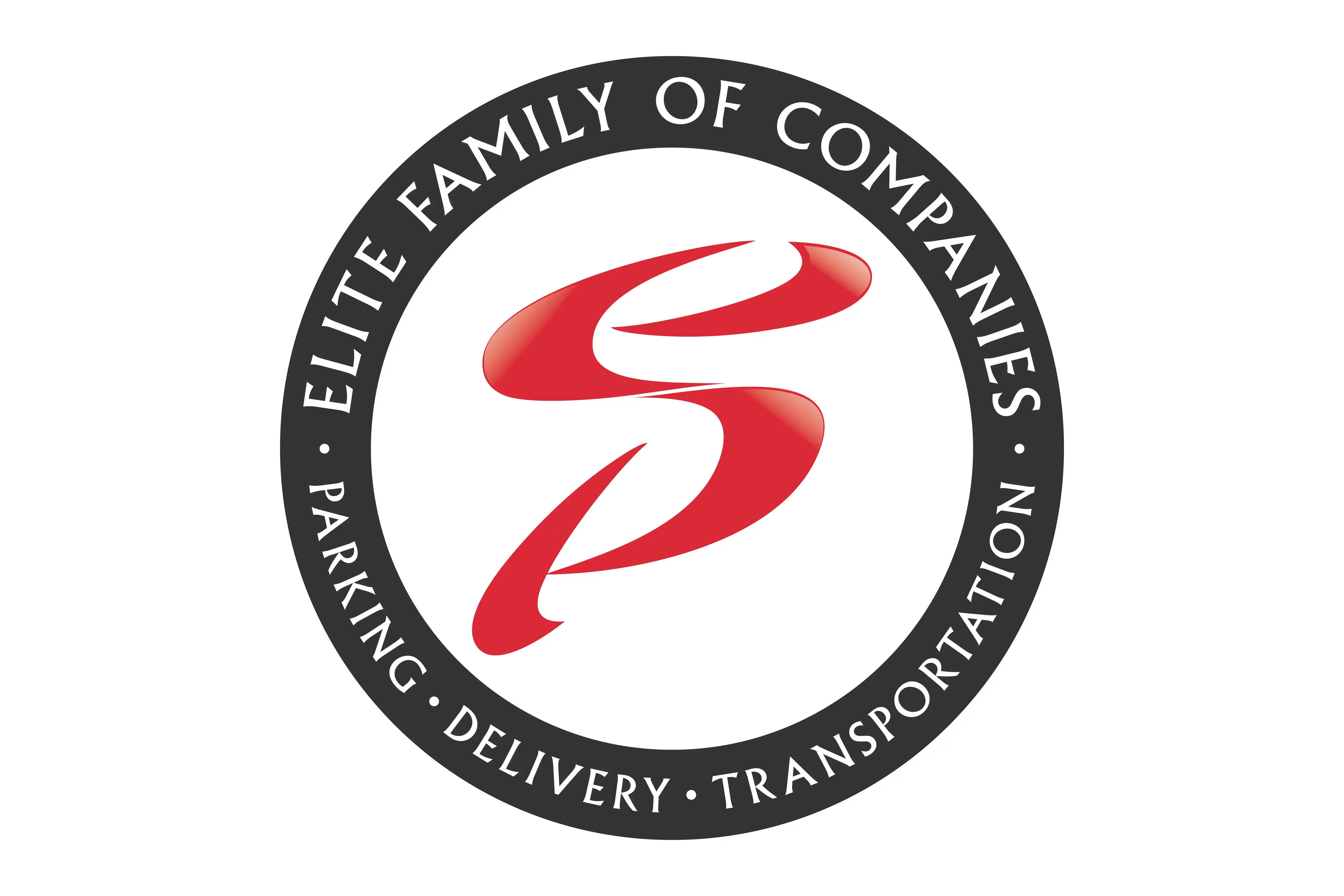“Butts off the Beach” Study Finds Cigarette Debris Remains Problematic Despite Laws

Researchers from Pacific Whale Foundation have released a study showing that beach goers on Maui are still littering their used cigarette filters despite the prohibitive law passed by the state of Hawai‘i and Maui County in July 2015 and April 2014. The goal of this policy at both the county and state level was to reduce cigarette filter litter by banning tobacco use in various areas.
“Due to their sheer numbers and prevalence, cigarette filters constitute a significant environmental burden. Made of cellulose acetate, a type of non-biodegradable plastic, cigarette filters can leach chemicals such as acetic acid, hexamine, arsenic, and chromium into the surrounding environment, and pose a risk to marine life if ingested,” according to the PWF.
On Maui, cigarette butts account for 35-60% of all debris items found on beaches.
The study, carried out by PWF Chief Scientist Jens Currie and Chief Biologist Stephanie Stack, and subsequent paper, Getting butts off the beach: Policy alone is not effective at reducing filter litter in Maui, Hawai‘i, takes an unfiltered look at policy implementation as an effective method in reducing cigarette-filter litter on Maui’s beaches.
“We found that policy alone was not effective at eliminating cigarette filter waste from Maui’s beaches, with filters being found on beaches well beyond the 2014 policy implementation,” according to Jens Currie, lead author of the paper.
Plastic waste, which includes cigarette filters, found in nearshore waters and the open ocean has been determined a considerable threat to marine life and their environments, according to the PWF.
“Cigarette butts can take many years to break down, and it is not uncommon for field researchers to find cigarette butts inside of dead sea birds, sea turtles, fish and other marine life,” said Stack. Additional implications exist for human health, safety and local and national economies, according to the study. According to the report, marine debris can further translate into loss of tourism revenue and recreation value.
To ascertain if policy implementation is an effective strategy for reducing cigarette-filter litter on Maui’s beaches, Currie and Stack employed a before–after control–impact (BACI) design to determine cigarette filter counts before and after the implementation of policy banning tobacco products at select beaches. The PWF study investigated whether changes in cigarette filter accumulation at an impact site prohibiting tobacco use decreased relative to data from a control site with no such ban in place.
To determine the level of impact that local law enforcement had in implementing the policy, a request of citation records for tobacco use in Maui County beach parks and recreation areas after the ban went into effect was sent to the Maui Police Department.
Citation records for Maui County Code 13.04.020 provided by the Maui Police Department showed zero citations were issued under the policy banning tobacco use on public beaches and recreation areas as of August 2018.
In general, the study found that policy was not effective at reducing cigarette litter in Maui, with no significant difference detected in cigarette-filter littering between the control and impact site after the policy went into place.
The study’s authors recommend that new policies are implemented in conjunction with a robust education and outreach campaign to raise awareness on the issue and a comprehensive research plan that includes monitoring pre- and post-implementation to evaluate efficacy. Additionally, it is suggested that Maui County strengthen the 2014 ban on tobacco use by conducting a state-funded outreach campaign raising awareness of the policy in conjunction with increased enforcement effort.
In 2016, PWF partnered with the NOAA Marine Debris Program to launch a public outreach campaign to educate the public about the marine debris crisis and inform Maui residents of the policy regarding tobacco-free beaches. “The high turnover of beach users, many of whom are visitors to Maui, requires sustained messaging to ensure that everyone who visits the island is aware of the policies that are in place to protect the ocean and marine life,” Currie suggests.
“There are many ways that individuals can help, from reducing the amount of waste you produce to advocating for more comprehensive waste management infrastructure,” Currie concludes. “We have all contributed to this problem, so we all need to work together to stop the flow of plastics into the ocean.”
The Pacific Whale Foundation is a nonprofit organization protecting the ocean through science and advocacy since 1980. The study and subsequent paper is published in Marine Pollution Bulletin and available for review.








